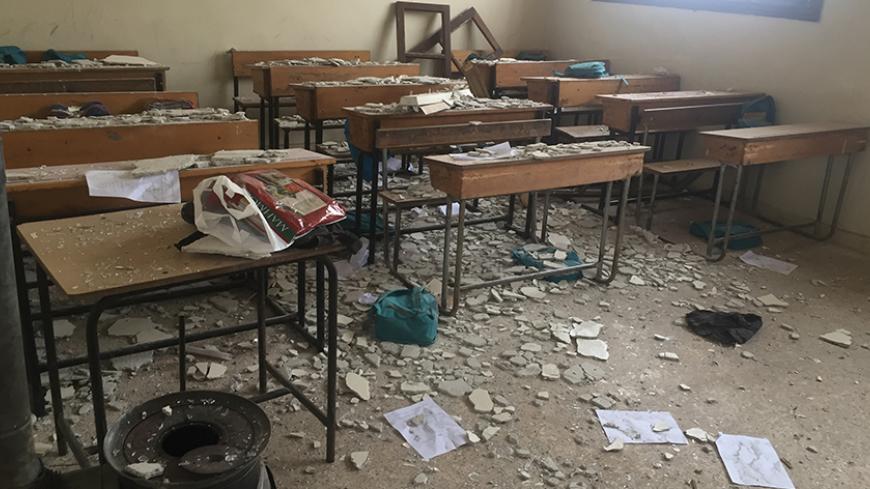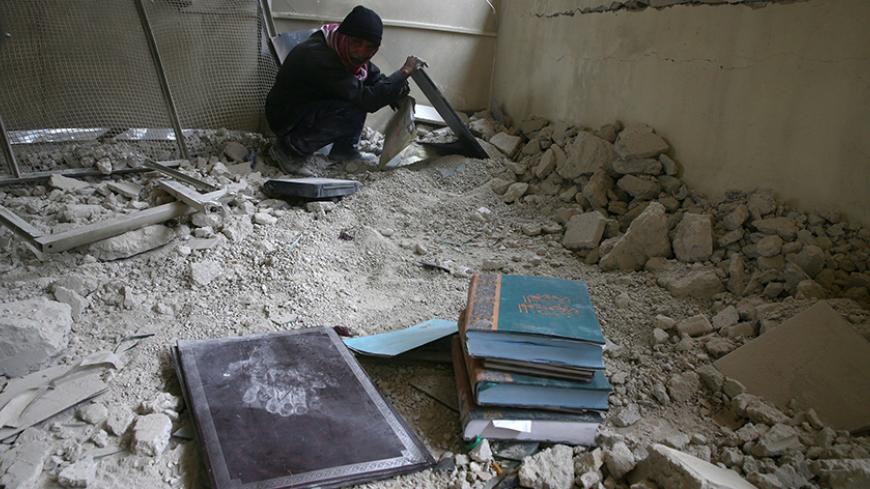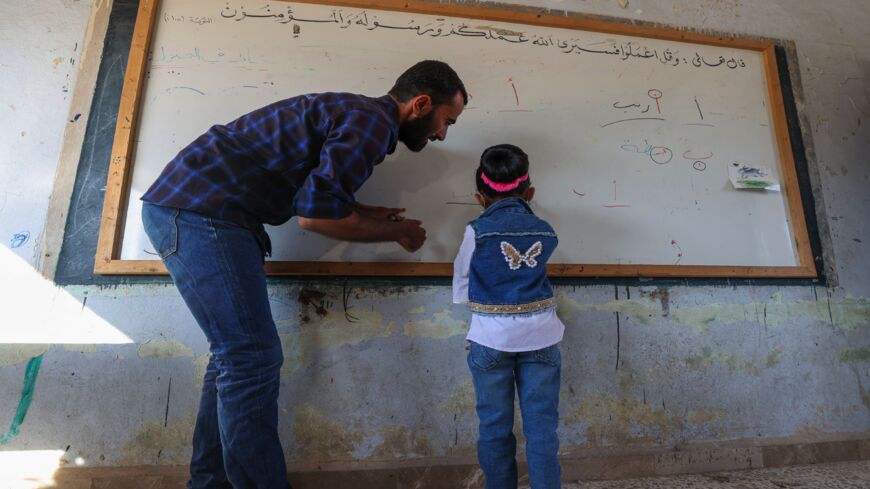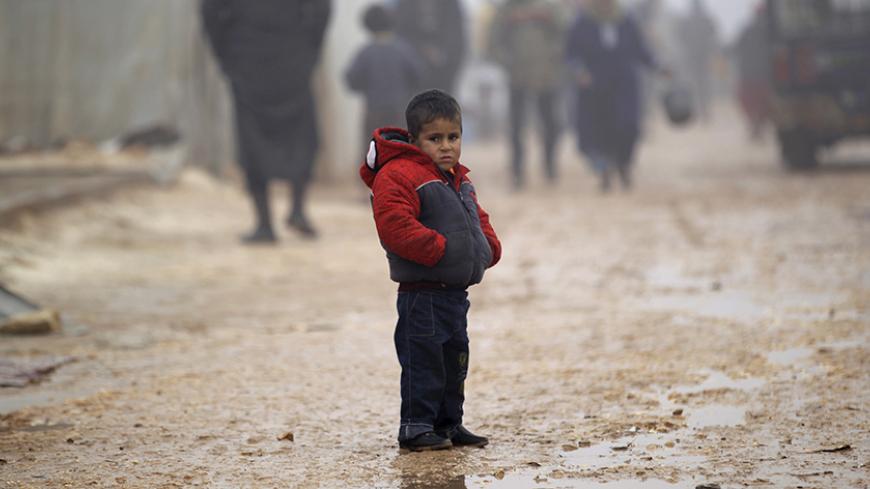Aleppo's children struggle to stay in school
A first-hand report from Aleppo on local initiatives in rebel-held east Aleppo trying to keep children in school.

ALEPPO, Syria — A nonofficial survey conducted by a group of activists from civil society organizations in Aleppo determined that half of the city and surrounding countryside’s schools were badly damaged or destroyed. The damage has come mostly from Syrian regime shelling against armed opposition groups that used some schools close to military front lines as headquarters.
After the closure of schools in most areas for a year and a half at least as a result of repeated airstrikes, some civil youth organizations collaborated with local residents to initiate measures to continue education in those areas. They sought the help of supporters and European agencies to obtain funding for schools and educational institutions.








